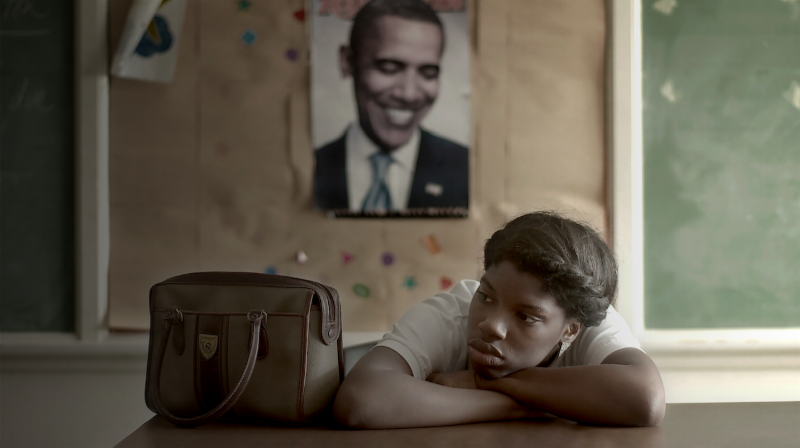‘For Ahkeem’ Depicts the Devastating Cycle of Black Oppression
Courtesy of Kate McEdwards (CMPR)
Jeremy S. Levine’s “For Ahkeem” tells the story of an African-American girl growing up in St. Louis, Missouri, and captures the raw emotions from her struggles.
October 18, 2017
Jeremy S. Levine and Landon Van Soest’s 2017 documentary, “For Ahkeem,” tells the story of an African American girl growing up in St. Louis, Missouri in the early 2010s. Though the narrative is simple, the film captures the raw emotions of the characters exceedingly well, shedding light on the fierce resilience of the black community in a world full of setbacks.
The documentary opens with a headstrong, 17-year-old Daje Shelton facing expulsion from her public high school due to a physical altercation — she is forced to attend an alternative high school in order to graduate and receive a diploma. Though Daje is unwilling, this is the only choice she has, and the film is brilliant in its decision to open with this scene. As the story progresses, the audience begins to see that this is a recurring theme among both the younger and older generations of St. Louis — the same sense of entrapment, dejection and limited options.
“For Ahkeem” is divided into two halves: the first being Daje’s struggles of living a normal life in a marginalized neighborhood, and the second being her heightened hardships after discovering that she is pregnant with a baby boy, whom she later names Ahkeem. For the first part of the film, Daje’s life appears relatively normal, as illustrated by her desire for the most ordinary things — good grades, a good relationship with her mother and a perfect boyfriend. However, beneath the layer of mundanity, elements specific to the darker side of St. Louis are sprinkled throughout daily snapshots of life. Daje does not have a father, is constantly reminded that the system is set up against the black community in school and beyond, and is fully aware that her boyfriend — a young black man — can die any day by the hand of police brutality.
“For Ahkeem” dives into darker territory halfway through the film, as Daje and her boyfriend, Antonio, must persevere against greater odds — teen pregnancy, felonies, familial tensions, graduation and job-hunting — in order to make it out of the neverending cycle of oppression. Daje’s fiery determination to escape the poverty of St. Louis makes “For Ahkeem” a deeply reflective and humanizing film.
The documentary only depicts a short portion of Daje’s life, but even those few months expose the audience to the institutionalized racism that affects the community in St. Louis. Even though Daje is represented as exceptionally steadfast and ambitious compared to her peers, pessimism is still pervasive throughout her life in everything and with everyone she encounters. The outlook on life is bleak, but that is precisely what makes Daje’s character poignant, memorable and powerful. When presented against the backdrop of Michael Brown’s shooting, “For Ahkeem” addresses the need for change in its own quiet way, offering a window into the parallel narrative of a girl who is desperately fighting against the system for a freedom she has never known.
“For Ahkeem” opened at Brooklyn Academy of Music and The Quad on Friday, Oct. 13.
Email Chelsea Cheng at [email protected].
























































































































































